I was living in a $39-a-night motel room, eating cold beans straight from a can, when the knock came at two in the morning. The man at my door wore a $5,000 suit and knew my name.
“Yeah, that’s me,” I said. “If you’re here about money, I don’t have any. My ex-wife, Melody, doesn’t know I’m here.”
“But what I’m about to tell you will change everything you thought you knew about her cancer, your divorce, and why she really left you.” My name is Vernon Hutchins. I’m forty-five years old, and six months ago, I had everything.
A successful construction company, a house I built with my own hands, two beautiful kids, and a wife I’d loved since high school. Now, I live in room 107 of the Sunset Valley Motel, where the walls are so thin I can hear my neighbor crying himself to sleep every night. Sometimes I wonder if he can hear me doing the same.
The man in the expensive suit was still standing at my door, holding a leather briefcase that probably cost more than my monthly motel bill. Behind him, the parking lot’s flickering neon light made shadows dance across his face. He looked like the kind of man who never had to sell his wedding ring to pay for someone else’s medical bills—the kind of man my ex-wife said she wanted instead of me.
“May I come in, Mr. Hutchins?” he asked. “What I have to show you shouldn’t be discussed in a doorway.”
I looked around my pathetic room: the unmade bed, a hot plate on a card table, and boxes of my life stacked against the wall. It wasn’t exactly set up for visitors, but something in his eyes made me step aside.
“Five minutes,” I said, “then you need to leave.”
He walked in, set his briefcase on my bed, and turned to face me. “Mr. Hutchins, my name is Theodore Ashford. I’m a private investigator, and I’ve been hired by someone who cares about you very much—someone who never believed the story your wife told.”
“Ex-wife,” I corrected him, the word still bitter in my mouth.
“Yes, of course. Your ex-wife, Melody.” He opened his briefcase and pulled out a thick manila folder.
“Tell me, Mr. Hutchins, did you ever meet Dr. Harrison Vance before your wife’s diagnosis?”
“Her oncologist?” I replied. “No, she found him through a specialist referral. Said he was the best in Denver for ovarian cancer. Why?”
Theodore pulled out a photograph. It showed Melody at what looked like a family barbecue, laughing with a man I recognized immediately: Dr. Vance. But this photo was dated three years ago, long before her diagnosis.
“Dr. Harrison Vance is your ex-wife’s second cousin, Mr. Hutchins,” Theodore said. “And he’s been helping her plan something truly evil for the past two years.”
The room started spinning. I grabbed the back of a chair to steady myself. “That’s impossible. I saw her suffering—the chemo, the weight loss, the fear in her eyes.”
“All carefully orchestrated, I’m afraid, but we’ll get to that.” He pulled out another document. “This is a bank statement from an account in the Cayman Islands. Your ex-wife has been depositing money there every time you sold something to pay for her treatments.”
“Your house netted her $400,000. Your construction equipment, another $200,000. Your father’s Harley, your wedding ring—all of it went straight from the medical payments to her offshore account.”
I sat down hard on the bed, and the cheap mattress creaked under my weight. My hands were shaking now, and not from the cold that seeped through the motel’s thin walls. “You’re telling me she never had cancer?”
“The medical records were falsified,” he explained. “The chemotherapy was actually a combination of saline solution and specific vitamins that would make her sick enough to seem authentic. She lost weight through strict dieting and prescription medications. Every single aspect was planned, documented, and executed with the help of Dr. Vance and her divorce attorney, Brent Caldwell.”
Brent Caldwell. The shark who had torn me apart in court. The man who painted me as an unstable, broke failure who couldn’t provide for his children. The man who stood next to Melody as she took my kids away.
“How long have you known this?” my voice came out as a whisper.
“I’ve been investigating for six months, hired the day after your divorce was finalized.” Theodore sat down in the rickety chair across from me. “The person who hired me suspected something was wrong when Melody refused to let them attend any medical appointments. They’ve been quietly gathering evidence ever since, waiting for the right moment to reveal the truth.”
“Who hired you?”
Theodore smiled for the first time since entering my room. “Your father, Earl Hutchins. He never believed Melody was sick, Mr. Hutchins. He said, and I quote, ‘My boy would give everything for family, but I’ll be damned if I let him lose everything to a lie.’”
The tears came then—hot, angry tears that I’d been holding back for months. My father, who I’d pushed away when he offered help, who I’d been too proud to accept money from, had been fighting for me this whole time.
“Dad knew?”
“He knew something was wrong. Your mother, June, helped too, following Melody when she said she was going to treatments. They documented everything. Your brother, Dalton, helped track the money trails. Your whole family has been working to save you, Vernon. You were never alone, even when you felt like you were.”
I thought about all those nights in this motel room, wondering if my kids, Colton and Piper, would ever forgive me for losing everything, for not being the father they deserved. I thought about Melody’s cruel laugh when she told me she wanted a real man, how she’d taken my children and poisoned them against me. All along, it had been a lie.
“What happens now?” I asked.
Theodore stood up, straightening his suit. “Tomorrow morning at 9:00 a.m., the FBI will arrest Melody and Brent Caldwell on charges of fraud, conspiracy, embezzlement, and about a dozen other federal crimes. Dr. Vance has already confessed in exchange for a reduced sentence. Your children have been told the truth and are currently with your parents, waiting for you to come home.”
“Home? I don’t have a home anymore.”
“Actually, you do.” Theodore pulled out a deed. “Your father bought your house through a trust the day you sold it. He’s been maintaining it, keeping your workshop exactly as you left it. He said you’d need it when this was all over.”
I stared at the deed with my address on it. The house I’d built with my own hands, where I’d raised my children, where I’d thought I’d grow old with Melody—it had been waiting for me all along.
“Why didn’t anyone tell me sooner?”
“We needed ironclad evidence. Your ex-wife was very careful, very smart. One wrong move and she would have disappeared with the money, and possibly the children. We had to wait until we had everything documented, every crime proven beyond doubt.”
Theodore moved toward the door, then turned back. “Your father asked me to tell you something. He said you did exactly what he raised you to do. You put family first; you sacrificed everything for love. The fact that she exploited that doesn’t make you weak, Vernon. It makes her evil. And evil only wins when good men stop fighting. Your fight isn’t over; it’s just beginning.”
As he reached for the door handle, I found my voice again. “Wait. You said someone knocked on my door and changed everything. But you haven’t changed anything yet. You’ve just told me the truth.”
Theodore smiled again, broader this time. “Mr. Hutchins, the truth is the most powerful change agent in the world. In twelve hours, your ex-wife will be in federal custody. Your children will be back in your arms. Your business can be rebuilt, but most importantly, you’ll know that your family never gave up on you. If that’s not everything changing, I don’t know what is.”
He opened the door to leave, then paused. “Oh, and Vernon, your father said to tell you that Chester Pike and your old construction crew have been turning down jobs for six months, waiting for you to come back. They never believed Melody either. Sometimes the family we choose is just as powerful as the family we’re born into.”
The door closed behind him, leaving me alone in room 107 with a truth that would reshape everything I thought I knew about the worst year of my life.
Before everything fell apart, I had the kind of life other men envied. Not wealthy, but comfortable. Not famous, but respected. I ran Hutchins Construction in Denver, a company I’d built from nothing but a pickup truck and a toolbox my grandfather left me. We specialized in custom homes, the kind where every detail mattered.
My hands had framed hundreds of houses, but the one I was proudest of was my own. I remember the morning everything was still perfect. It was a Thursday in March, and I woke up at 5:30 a.m. like always. Melody was still asleep beside me, her dark hair spread across the pillow. Twenty years of marriage, and I still felt lucky watching her breathe.
She’d left a note on my nightstand like she did every morning: Coffee’s ready, lunch is in the fridge. Love you, Vern. Downstairs, my son Colton was already at the kitchen table, fourteen years old and built like I was at that age, all knees and elbows waiting for the rest of him to catch up. He was studying his playbook for spring football practice.
“Morning, Dad. Can you run plays with me later?”
“After work, buddy. We’ll throw the ball around until your arm gets tired.”
My daughter, Piper, came down next, carrying her violin case like it contained gold. She had my mother’s musical talent and Melody’s determination. At fourteen, she was already first chair in the high school orchestra, despite being the youngest member.
“Dad, the spring concert is next month. You’ll be there, right?”
“Wouldn’t miss it for the world, sweetheart.”
This was our routine. Breakfast together, everyone talking over each other. Melody packing lunches while reminding us about dentist appointments and soccer practices. I’d kiss everyone goodbye and head to work, where my crew would already be loading trucks.
Chester Pike, my foreman for eight years, would hand me the day’s schedule. “Vernon, we got the Riverside property framing today, and Mrs. Patterson wants to change her kitchen layout again.”
“Third time this month?”
“Fourth, but who’s counting?”
We’d laugh because that’s what you did. You dealt with difficult clients and weather delays and lumber shortages, and you built something beautiful anyway. My crew was solid—eight men who showed up early and stayed late when needed, men who took pride in doing things right the first time.
My father, Earl Hutchins, would stop by the job site sometimes. Seventy-three years old and still built like a linebacker, he’d run Hutchins Construction before me, back when everything was done with hand tools and sweat. He’d walk through my projects, running his hand along the framing, checking corners with his practiced eye.
“Good work, son. Your grandfather would be proud.”
“Thanks, Dad.”
“Your mother wants you all over for Sunday dinner,” he’d add. “Don’t be late.”
Sunday dinners at my parents’ house were sacred. My mother, June, would cook enough food for an army. My brother, Dalton, would show up with his wife and three kids. We’d eat until we couldn’t move, then sit on the back porch while the kids played in the yard.
Dalton worked as a mechanic and had grease permanently embedded under his fingernails, but he could fix anything with an engine. “Vern, you ever think about expanding? Maybe getting into commercial properties?”
“Nah, I like knowing the families who’ll live in what I build,” I’d say. “It’s personal, you know?”
Melody would help Mom with the dishes, their laughter drifting through the kitchen window. They’d been close since high school, when I first brought her home. Mom had pulled me aside that night and said, “That one’s special, Vernon. Don’t mess it up.” I hadn’t, or at least I thought I hadn’t.
The Tuesday that changed everything started like any other. Melody had been tired lately, complaining about some stomach pain. I’d been after her to see a doctor, but she kept putting it off. Then she called me at work, crying so hard I could barely understand her.
“Vern, I’m at the hospital. They found something. Can you come?”
I left Chester in charge and drove to Denver General, breaking every speed limit. I found Melody in the oncology ward, still in a paper gown, mascara streaked down her cheeks. Dr. Harrison Vance stood beside her, tall and serious in his white coat.
“Mr. Hutchins, your wife has stage-three ovarian cancer,” he said. “We’ll need to start aggressive treatment immediately.”
The words hit like a sledgehammer to the chest. Cancer—the same thing that took my grandmother, my uncle, and Melody’s father. I sat down hard in the visitor’s chair while Dr. Vance explained treatment options, survival rates, and costs. The numbers blurred together; all I could focus on was Melody’s hand in mine, trembling like a bird.
In the parking garage afterward, she broke down completely. We sat in my truck while she sobbed against my chest, her fingers clutched in my work shirt. “I don’t wanna die, Vern. I wanna see our kids graduate, get married, and have babies. I want to grow old with you.”
I held her face in my calloused hands and looked straight into those green eyes I’d fallen in love with at seventeen. “Baby, I’d sell my soul to keep you here. We’re going to beat this thing. Whatever it takes, whatever it costs, we’re going to win.”
She kissed me then, desperate and frightened. “Promise me, Vern. Promise me you won’t let me die.”
“I promise, Mel. I swear on everything I am, everything I have, you’re going to survive this.”
That night, after the kids were asleep, we sat at our kitchen table with insurance paperwork spread out like a map to hell. Coverage limits, deductibles, experimental treatment exclusions—the numbers were staggering. Insurance would cover $60,000; the rest would be on us.
“We’ll figure it out,” I told her. “The house has equity, the business is doing well. We have options.”
She squeezed my hand. “I love you, Vernon Hutchins.”
“I love you too, Melody. We’re going to get through this together.”
Looking back now, knowing what I know, I can see the signs I missed: the way she turned away when she said she loved me, the calculation in her eyes when we discussed selling assets, the quick phone call she made to someone she claimed was her sister, though her sister lived in Seattle and it was past midnight there. But that night, all I saw was my wife, terrified and fragile, needing me to be strong. So I was strong. I made plans and spreadsheets and lists of everything we could sell. I was ready to move heaven and earth, because that’s what you do for family.
The bills started arriving two weeks after Melody’s diagnosis. Each envelope felt heavier than the last. I’d sit at the kitchen table after everyone was asleep, calculator in hand, trying to make the numbers work. They never did. The first bill was for $47,000 for diagnostics and initial consultations. Insurance covered $12,000. I emptied our savings account and paid the rest.
Melody found me staring at the bank statement the next morning. “Vern, this is too much. Maybe we should get a second opinion, find a cheaper option.”
“There is no cheaper option for stage three, Mel. Dr. Vance is the best. That’s what you need.”
She kissed my forehead, and I should have noticed she was already showered and dressed at five in the morning. “I have treatment at nine. You don’t need to come. Focus on work.”
“I want to be there with you.”
“No, really, I’ll be fine. Someone needs to keep making money, right?”
The construction business was doing well, but not well enough. I had three houses under contract, but construction meant paying crews and suppliers before getting paid yourself. Cash flow was tight on a good day, and these weren’t good days anymore. Chester Pike noticed the stress first.
“Boss, you okay? You’ve been distracted lately.”
“Melody’s sick, Chess. Cancer.”
His face went white. Chester had lost his wife to breast cancer five years earlier. “Jesus, Vern. What do you need?”
“A miracle, or about $300,000. Same thing these days.”
He paused. “I’ve got $20,000 saved. It’s yours.”
“I can’t take your money, Chess.”
“You gave me a job when nobody else would, right after Beth died. I was a drunk mess, and you took a chance. Take the money, Vern.”
I took it. Pride is expensive when your wife is dying. The second round of bills came with Dr. Vance’s recommendation for an experimental treatment.
“There’s a new drug combination showing remarkable results,” he explained in his pristine office. “It’s not FDA-approved yet, so insurance won’t cover it, but I’ve seen tumors shrink by seventy percent.”
“How much?” Melody asked, gripping my hand.
“The treatment protocol is approximately $180,000.”
Melody started to object, but I cut her off. “We’ll find it.”
I sold the construction equipment first—the excavator I’d saved three years to buy, the dump trucks, the crane—all the tools that let me take on bigger projects. I posted them online Sunday night and sold them by Wednesday. I had to call my clients and explain the delays this would cause. Mrs. Patterson was understanding.
“Vernon, take all the time you need. Family comes first.”
But the Riverside developers weren’t as kind. They pulled the contract and demanded their deposit back. Just like that, $60,000 in future profit vanished.
I had to let the crew go next, calling them into the office trailer on a Friday afternoon. These men had worked for me for years. They’d been at my kids’ birthday parties, my father’s retirement celebration.
“I gotta shut down for a while, boys. I’m sorry.”
Miguel, my best framer, shook his head. “We can work for less, boss. Take pay cuts.”
“It wouldn’t be enough. I need you to file for unemployment, find other work. When this is over, if you’ll have me, I’ll hire every one of you back.”
They filed out quietly. Chester stayed behind. “This isn’t right, Vern. Something feels off about all this.”
“Cancer doesn’t care about what feels right, Chess.”
The house went on the market in month three. The house I’d built with my own hands, where every wall held a memory. Colton found me standing in the workshop I’d added the year he was born.
“Dad, are we really moving?”
“It’s just temporary, son. When Mom gets better, we’ll build another house, a better one.”
“I don’t want a better one. I want this one.”
So did I, but the house sold in two weeks for $420,000. After paying off the mortgage, we cleared $300,000. It went straight to medical bills and the new treatment protocol. We moved into a two-bedroom rental apartment downtown. Piper had to share a room with her brother for the first time in her life. She didn’t complain, at least not to me, but I heard her crying at night through the thin walls.
My father came by the apartment one evening and saw me packing up my tools to sell. “Vernon, this has gone far enough. Let me help.”
“Dad, you and Mom need your retirement money.”
“We need our son more. Your mother agrees. We can give you $50,000.”
“I won’t take it.”
He slammed his hand on the table, something he hadn’t done since I was a teenager. “Damn your pride, boy! You’re drowning and won’t take a life preserver.”
“My wife, my responsibility.”
“Your family, our responsibility. That’s how this works.”
But I wouldn’t budge. Looking back, I wish I had. It would have saved more than money.
The wedding ring was the last thing to go. Three carats, platinum band, bought when I landed my first big construction contract. I’d promised Melody she’d never have to take it off. Now, I was taking mine off at Goldman’s Pawn Shop on Colfax Avenue. Mr. Goldstein, who’d known my family for forty years, looked at it sadly.
“Vernon, this ring has a story. Your grandfather bought the original band from my father in 1955. You had it reset for Melody.”
“How much can you give me?”
“It’s worth $8,000. I’ll give you $15,000.”
“I can’t take charity, Mr. Goldstein.”
“It’s not charity. It’s an investment in a good man having a bad year.”
I took the $15,000 and added it to the $10,000 I got for my father’s Harley, which I’d sold without telling him. That covered another month of treatment. Meanwhile, Melody was getting better, at least physically. The weight she’d lost made her cheekbones sharp, but her color was returning. Dr. Vance showed us scans where the tumors had shrunk dramatically.
“The treatment is working better than expected,” he announced. “I think we’re looking at full remission within two months.”
Melody cried with relief. I felt nothing but exhaustion. We’d won, but at what cost? I was down to nothing—no business, no house, no savings. But she was alive. That was supposed to be enough.
My brother, Dalton, pulled me aside at Sunday dinner. “Vern, something’s not right. Melody seems different.”
“She’s been through hell, Dal.”
“No, it’s something else. The way she looks at you, like she’s disappointed or something.”
“You’re imagining things.”
But he wasn’t. I just couldn’t see it yet. Or maybe I didn’t want to see it. When you’ve given everything for someone, you can’t afford to question if they were worth it. That kind of thinking could drive a man insane.
The same week Dr. Vance declared Melody cancer-free, she started getting text messages that made her smile. When I asked who she was talking to, she said it was her support group. “They understand what I’ve been through,” she said, not looking at me. “You wouldn’t get it.” I should have known then. The woman who’d shared everything with me for twenty years suddenly had secrets, but I was too tired to fight, too broke to think straight, and too relieved she was alive to question the distance growing between us.
Six weeks after Melody’s final clear scan, I came home from a day-labor job to find suitcases in our bedroom. She was folding clothes with the kind of precision she used when she was angry. The apartment smelled like her expensive perfume, the one she’d stopped wearing during treatment but had suddenly started using again.
“Mel, what’s happening? Are we going somewhere?”
She didn’t look up from her packing. “I’m leaving you, Vernon.”
The words didn’t make sense. I’d just spent fourteen months selling everything I’d worked for to save her life. We’d won. She was cancer-free. We were supposed to rebuild together.
“I don’t understand. Is this about the money? I’ll build it back, Mel. Give me time.”
She finally looked at me, and her eyes were as cold as January ice. “Look at yourself, Vernon. You’re pathetic, working day labor like some illegal immigrant, living in this dump, wearing the same three shirts because you sold everything else.”
“I sold everything to save your life.”
“And that’s exactly the problem.” She laughed, and it was a sound I’d never heard from her before—cruel and sharp. “A real man wouldn’t have lost everything. A real man would have found a way to keep his business, his house, his dignity.”
“A real man? I gave up everything for you.”
“No, you gave up everything because you’re weak. My lawyer, Brent Caldwell, now there’s a man who knows how to handle life. He saw my potential, saw what I could become without you dragging me down.”
Brent Caldwell. I knew that name. He was the divorce attorney with the billboard on I-25, the one that said, Take Him for Everything He’s Worth.
“You’re having an affair?”
“It’s not an affair when the marriage is already dead, Vernon. It died the day you sold our house, maybe before. I watched you scramble and beg for money, saw you groveling to that pawn shop owner, watched you fire your crew like a coward. It was disgusting.”
My hands were shaking now. “I was trying to save your life.”
“Well, congratulations. You saved it. And now I’m going to live it properly with someone who isn’t a complete failure.”
The divorce papers were already drawn up. She handed them to me like she was giving me a work invoice. “Brent says you’ll need to get your own lawyer, though I don’t know how you’ll afford one. I’m seeking full custody of the children, spousal support, and half of any future earnings from your construction business when you rebuild it.”
“You can’t take my kids, Melody.”
“I can and I will. They need stability, Vernon, not a father who lives in motels and works under the table for cash.”
My brother, Dalton, arrived within an hour of my call. He found me sitting on the apartment steps, divorce papers still in my hand. He read through them, his face getting redder with each page.
“This is insane, Vern. She can’t do this. You saved her life.”
“Apparently, that makes me weak.”
“We’re fighting this. I’ll call every lawyer in Denver if I have to.”
But lawyers cost money, and I had none. Legal aid assigned me a public defender named Patricia Moss, fresh out of law school and overwhelmed with cases. She reviewed my financial documents with the enthusiasm of someone reading a grocery list.
“Mr. Hutchins, you have no assets, no steady income, and you’re living in a space that wouldn’t meet custody requirements for two teenagers. Mrs. Hutchins has already moved into a four-bedroom house in Cherry Creek with Mr. Caldwell. He’s her divorce lawyer and now her fiancé, according to these documents. It doesn’t look good.”
The custody hearing was three weeks later. I wore my only suit, the one I’d kept for funerals. Melody showed up in designer clothes I’d never seen before, Brent Caldwell at her side like he’d already won. Judge Maureen Thornton presided. She was known for being fair but strict about children’s welfare.
Melody testified first, painting a picture of me as unstable, financially irresponsible, and possibly depressed. “He sold our family home without truly consulting me,” she told the judge, tears perfectly timed. “He made reckless financial decisions that left our children without stability. I’m concerned about his mental state.”
When my turn came, I tried to explain. “Your Honor, I sold everything to pay for Melody’s cancer treatment. The medical bills were over $300,000.”
“And where are those medical records?” Caldwell interrupted. “My client’s health information is private, but I can assure the court she would have survived with standard treatment. Mr. Hutchins chose to pursue excessive measures that bankrupted the family unnecessarily.”
“Excessive? She had stage-three cancer!”
Judge Thornton called for order. Then came the worst part. My children were brought in to testify. Colton wouldn’t meet my eyes. Piper stared at her hands.
“Would you prefer to live with your mother or father?” the judge asked.
Colton’s voice was flat, rehearsed. “Mom’s house is better for us. Dad can visit, but we need stability.”
Piper just nodded, tears streaming down her face. I wanted to scream that their mother had coached them, threatened them, but I had no proof. Patricia Moss didn’t object to anything. She seemed defeated before we’d even started.
The ruling was swift. “Given Mr. Hutchins’s current financial situation and living arrangements, I award full custody to Mrs. Hutchins. Mr. Hutchins will have supervised visitation every other weekend. Additionally, he will pay $500 monthly in child support and thirty percent of any future earnings exceeding $40,000 annually for spousal support.”
“Your Honor, I don’t even have $500.”
“Then I suggest you find employment quickly, Mr. Hutchins, or face contempt charges.”
Outside the courthouse, Melody walked past me with the kids. Colton tried to stop, but she pulled him along. “Don’t make this harder than it needs to be,” she said loudly enough for everyone to hear.
Brent Caldwell stopped beside me. “You should have just let her go when you had the chance, Vernon. Some men aren’t meant to play in the big leagues.”
“I loved her.”
“And that was your first mistake. Love is for people who can afford it.”
That night, I moved into the Sunset Valley Motel, $39 a night paid weekly. The owner, Mrs. Chen, had kind eyes and didn’t ask questions when I paid in wrinkled cash.
“Room 107,” she said, handing me the key. “It’s quiet. You look like you need quiet.”
The room smelled like cigarettes and failure. One bed, one chair, a TV that got three channels. I sat on the bed and called Dalton.
“I lost everything, Dal. My kids, my wife, my entire life.”
“You didn’t lose everything, Vern. You’re still here, and as long as you’re here, you can fight back.”
“With what? I have nothing left to fight with.”
“You have us. Me, Mom, Dad—we’re not giving up on you.”
But sitting in that motel room, looking at the water-stained ceiling, I’d given up on myself. I’d done everything right, everything a good man was supposed to do, and it had all been for nothing. Melody was living in a mansion with her lawyer, my kids thought I was a failure, and I was eating canned beans in a motel that rented rooms by the hour. Three weeks passed in a blur of day labor and silence. I stopped answering my family’s calls, stopped hoping things would get better. Then came the knock at two in the morning that would change everything.
Theodore Ashford’s revelations about Melody’s fake cancer hung in the motel room air like smoke from a fire I couldn’t see. I stared at the documents spread across my bed, each one more damning than the last: bank statements from the Cayman Islands, text messages between Melody and Dr. Vance planning appointment times when I wouldn’t be able to attend, photos of her with Brent Caldwell dated two years ago, long before her «diagnosis.»
“This can’t be real,” I said, my voice hoarse. “I saw her suffer—the vomiting, the weight loss, the fear in her eyes.”
Theodore pulled out a medical report. “Ipecac syrup induces vomiting. Phentermine causes rapid weight loss. Anxiety medications create realistic panic symptoms. Dr. Vance prescribed all of these under the guise of managing treatment side effects. Your wife was essentially poisoning herself just enough to seem sick while you destroyed your life to save hers.”
I stood up too fast, and the room spun. “I need air.”
“There’s more, Mr. Hutchins.”
“More? What more could there possibly be?”
Theodore handed me a transcript. “This is a recorded conversation between Melody and Caldwell from three days before she asked for the divorce. Would you like me to read the relevant portion?” I nodded, unable to speak.
Theodore’s voice was steady as he read. “Caldwell says, ‘Is Vernon suspicious?’ Melody responds, ‘He’s too exhausted to think straight. The fool sold his wedding ring yesterday. Actually cried at the pawn shop, according to Mr. Goldstein.’ Caldwell laughs and says, ‘Perfect. File the papers Monday. By the time he figures anything out, we’ll be in Bermuda with his money.’”
The rage hit me like a physical force. I punched the wall, leaving a hole in the cheap drywall. My knuckles bled, but I didn’t feel it. “They laughed about it. She watched me sell my grandfather’s ring and laughed about it.”
“Your father suspected something when Melody refused to let him visit during treatments. She claimed it was too emotional for her, but your father knew better. He hired me six months ago.”
“Six months? I’ve been living in this hellhole for six months.”
“We needed ironclad evidence. Your ex-wife was very careful. One wrong move, and she would have disappeared with the money and your children. We had to build an airtight case.”
Theodore pulled out his phone and showed me a video. It was Dr. Vance in what looked like an FBI interrogation room.
A voice off-camera stated, “Dr. Harrison Vance, you are confessing to medical fraud, insurance fraud, and conspiracy to commit financial fraud in exchange for a reduced sentence. Is that correct?”
“Yes,” Vance replied, his face pale and sweating. “Melody is my cousin. She came to me two years ago with this plan. She said her husband was getting boring, that she deserved better. She wanted out but needed money to start over. I told her it was insane, but she offered me thirty percent of whatever she collected. I have gambling debts. I needed the money.”
The video continued. “She never had cancer?”
“Never. Every scan I showed Vernon was from other patients, edited with Melody’s information. Every treatment was fake. The whole thing was an elaborate con.”
Theodore paused the video. “There are three hours of his confession. He details everything, including how Melody started her relationship with Caldwell before the fake diagnosis. Caldwell actually gave her the idea after handling another client’s divorce where the spouse had cancer.”
I sat back down on the bed, my head in my hands. “My kids. Oh, God, my kids think I’m a failure.”
“About that,” Theodore said, pulling out another document. “Your father has been meeting with them secretly. Two weeks ago, he showed them some of this evidence. They know the truth now, Vernon.”
“What? Your son, Colton, called your father after finding his mother shredding documents. He knew something was wrong. Your father told them everything. They’re at his house right now, waiting for you.”
“But the custody order says I can’t see them without supervision.”
Theodore smiled. “That custody order is about to become irrelevant. In approximately four hours, at 6:00 a.m., the FBI will arrest Melody and Brent Caldwell. The charges include medical fraud, insurance fraud, conspiracy, money laundering, and custodial interference. Dr. Vance was arrested yesterday and is currently in federal custody.”
“This is really happening?”
“It’s happening. Your father also wanted me to tell you something else.” Theodore pulled out a deed. “He bought your house the day you sold it, using a shell company to hide the purchase from Melody. It’s been waiting for you.”
I looked at the deed—my address, the house I’d built with my own hands. “Dad bought my house.”
“He also kept your business licenses current, maintained your contractor’s insurance, and has been turning away clients who wanted to hire Hutchins Construction, telling them you’d be back soon.”
The tears came then. My father, who I’d pushed away out of pride, had been fighting for me this entire time.
“There’s one more thing,” Theodore said. “Chester Pike and your construction crew have been meeting at your father’s house every Sunday. They’ve been refusing other permanent jobs, doing day labor just like you, waiting for you to come back. Your father’s been helping them financially when they’ve needed it.”
I couldn’t speak. My throat felt closed with emotion.
Theodore stood to leave. “Your father wanted me to give you this.” He handed me car keys. “Your truck is in the parking lot. He’s been maintaining it.” He then gave me a business card for Theodore Ashford, Private Investigator. On the back, in my father’s handwriting, it read: Son, a man isn’t measured by what he loses, but by what he’s willing to sacrifice for family. You sacrificed everything. Now let your family help you rebuild. No more pride. Just come home. Dad.
“Mr. Hutchins,” Theodore said at the door, “your ex-wife thought she broke you. She thought you were weak for giving everything to save her, but she never understood that your strength wasn’t in what you owned. It was in what you were willing to lose for someone you loved. That’s not weakness. That’s the kind of strength most people will never have.”
After he left, I sat in the darkness of room 107 for an hour, processing everything. Then I got up, showered, put on my last clean shirt, and walked out to the parking lot. My truck was there, gleaming under the streetlight—same crack in the windshield from where Colton had hit a baseball two years ago, same coffee stain on the driver’s seat from when Piper knocked over my mug rushing to get to school.
I drove to my father’s house as the sun came up. The entire family was on the front porch. Colton and Piper ran to the truck before I could even park.
“Dad!” Piper sobbed against my chest. “We’re so sorry. Mom made us say those things in court. She said she’d send us to military school if we didn’t.”
Colton, trying to be strong but failing, hugged me harder than he ever had. “I knew something was wrong, Dad. The way Mom laughed about selling the house… it wasn’t right. Grandpa showed us the truth. She’s evil, Dad. She’s actually evil.”
My father stood on the porch, my mother beside him. He looked older but satisfied, like a general who’d finally won a long war.
“Son,” he said simply.
“Dad, I don’t know what to say.”
“Then don’t say anything. Just come inside. Your mother made breakfast, your crew is on their way over, and we have a business to rebuild. But first, we eat. You look like hell.”
As we walked inside, my phone rang. An unknown number. “Mr. Hutchins, this is Agent Sarah Coleman with the FBI. We have Melody and Brent Caldwell in custody. We’ll need you to come to the federal building this afternoon to give a statement.”
“Are they going to prison?”
“Mr. Hutchins, with the evidence we have, they’re both looking at fifteen to twenty years, minimum. The money has been frozen and will be returned to you as restitution.”
I hung up and looked at my family. “They got her.”
My mother started crying. Dalton whooped and punched the air. My father just nodded. “Justice,” he said quietly. “Now, we rebuild.”
Six months after that morning at my father’s house, I stood in my rebuilt workshop, running my hands over the same workbench where I’d taught Colton to use a hammer. The FBI had been thorough. Melody got twelve years in federal prison for fraud, conspiracy, and money laundering. Brent Caldwell got fifteen years plus disbarment. Dr. Harrison Vance lost his medical license and got eight years.
The court ordered full restitution, though most of the money was gone. What they recovered went toward rebuilding my business, but the money wasn’t what mattered. What mattered was the Saturday morning I was living right now, with Colton and Piper working beside me on a custom bookshelf for their grandmother.
“Dad,” Piper asked while sanding a shelf board, “how do you trust anyone after what Mom did?”
I thought about that question a lot these days. “You know what your Grandpa Earl taught me? Trust, but verify. I trusted your mother completely, and that wasn’t wrong. Love should include trust, but I ignored warning signs because I wanted to believe the best. Real love, like what Grandpa showed when he investigated quietly while supporting me, protects while it trusts.”
Colton looked up from measuring a board. “Do you hate her?”
“No, son. Hate would mean she still has power over me. I feel sorry for her. She had a family that loved her, a husband who would have died for her, and she threw it away for money that’s now frozen in federal accounts. She’ll spend the next twelve years in a cell thinking about that choice.”
Chester Pike walked into the workshop with coffee and donuts. He’d been the first one back when I reopened Hutchins Construction. The whole crew returned within a week. We were smaller now, but stronger. Every client who’d left came back with apologies and new contracts.
“Vernon, Mrs. Patterson wants to know if you can build her a guest house. Says she’ll wait as long as it takes to get you specifically.”
“Tell her we’ll start next month.”
My father appeared in the doorway, still checking my work after all these years, but now I welcomed it. His vigilance had saved me when I couldn’t save myself.
“Looking good, son, though that corner joint could be tighter.”
“It’s perfect and you know it, old man.”
He smiled. “Just keeping you sharp.”
We worked in comfortable silence until Piper asked another question. “Dad, that private investigator, Mr. Ashford… his card is still on your desk. Why?”
I picked up the card, reading the note on the back for the hundredth time. “He thinks I should help other people going through what I went through. Fake illness scams are more common than you’d think. He wants me to consult on cases, share my story, and help people see the warning signs.”
“Will you?”
“Maybe. Right now, I’m focused on rebuilding. But someday, yeah. If I can stop one person from going through what we went through, it’ll be worth it.”
My mother called from the house, “Lunch is ready, everyone inside!”
As we walked toward the house, Dalton pulled up in his truck. He’d started coming to every family meal, bringing his kids, making sure I never felt alone. The house was loud again, full of life and laughter and arguments about football teams.
After lunch, I stood on the back porch with my father, watching the kids play basketball in the driveway. The same hoop I’d installed fifteen years earlier still hung there, a little rusty but solid.
“Dad, I never properly thanked you.”
“You don’t need to.”
“Yes, I do. You saved my life when I’d given up on it.”
He put his hand on my shoulder, his grip still strong at seventy-four. “Son, you would have done the same for Colton. Hell, you did do the same for someone who didn’t deserve it. That’s not stupidity; that’s character. The only difference between you and me is I’ve lived long enough to know that sometimes the people we love most are the ones capable of hurting us worst.”
“How do you know when to trust and when to verify?”
“You don’t. You just do both. You love with your whole heart, but you keep your eyes open, and you make sure your family knows that no matter what happens, you’ve got their back.”
The motel key from room 107 still hangs on a hook in my workshop. It’s not a reminder of my lowest point, but proof that rock bottom isn’t the end if you have people who won’t let you stay down. Every morning, I see it when I grab my tools, and I remember that the worst thing that ever happened to me led to the most important lesson of my life. Real strength isn’t about never falling; it’s about having people who won’t let you stay down.
It’s about a father who fights for you when you can’t fight for yourself. It’s about a brother who shows up without being asked. It’s about friends who wait for you to come back, no matter how long it takes. Two weeks ago, a man called me. His wife had been diagnosed with a rare blood disease, and something felt off about the whole situation. Theodore Ashford had given him my number.
“Mr. Hutchins, I don’t know where else to turn. I’ve already sold my car, and she’s pushing me to sell the house.”
“Can you meet me tomorrow?” I asked. “And bring every piece of medical paperwork you have.”
I found three inconsistencies in the first five documents. The doctor’s signature varied slightly, the hospital letterhead was from a facility that had closed two years earlier, and the medication prescribed wasn’t used for the disease she claimed to have. That man’s wife is now under investigation. He still has his house.
“How can I ever thank you?” he asked when we confirmed the fraud.
“You just did. Every person we help makes what I went through worth something.”
My son, Colton, recently wrote an essay for school about heroes. He wrote about his grandfather, the man who fought a silent war to save his son. He wrote about me, who gave everything for love, even when that love was a lie. But mostly, he wrote about how sometimes the real hero is the person who sees you at your lowest and says, “Get up. We’re not done yet.”
The teacher called me, concerned the story was too mature for a fourteen-year-old. “He lived it,” I told her. “He earned the right to tell it.”
Yesterday, Piper performed at her spring concert—the same one I promised to attend that morning when our life was still perfect. I sat in the front row between my parents, with Dalton on my other side, and Chester and the crew filling the rest of the row. When she played her solo, I thought about all the concerts Melody would miss from her federal prison cell. But mostly, I thought about second chances.
The knock on my motel door that night didn’t just reveal the truth about Melody’s deception. It revealed the truth about love, family, and the unbreakable bonds that hold us up when we can’t stand on our own. I was a man who lost everything saving someone who was never sick. But in losing everything, I found what actually mattered. Not the house I built with my hands, but the home my father kept alive in his heart. Not the business I created, but the brotherhood that waited for me to return.
My name is Vernon Hutchins. I’m a construction worker, a father, a son, and a survivor of the worst betrayal imaginable. But I’m still here, still building, still trusting—but now verifying, too. And that knock on my motel door wasn’t just someone coming to tell me the truth. It was life itself, refusing to let me give up, refusing to let Melody’s cruelty be the end of my story.
It was my father’s love, wearing a suit and carrying evidence, reminding me that family isn’t about blood or marriage certificates. It’s about who shows up when you’re eating cold beans in a motel room and says, “Time to come home, son. We’ve got work to do.”



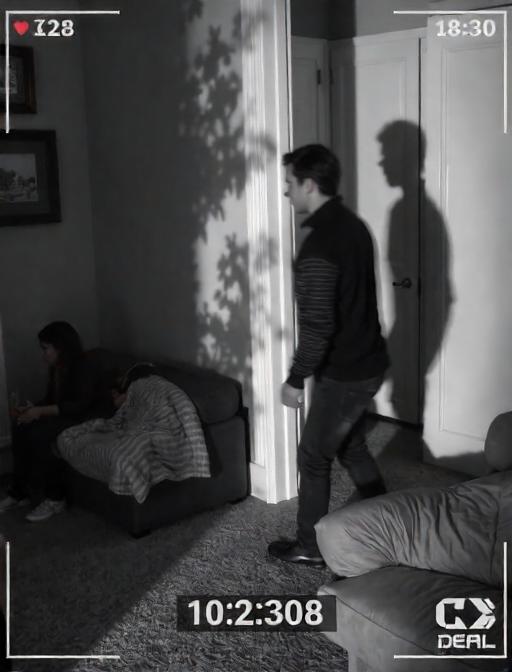





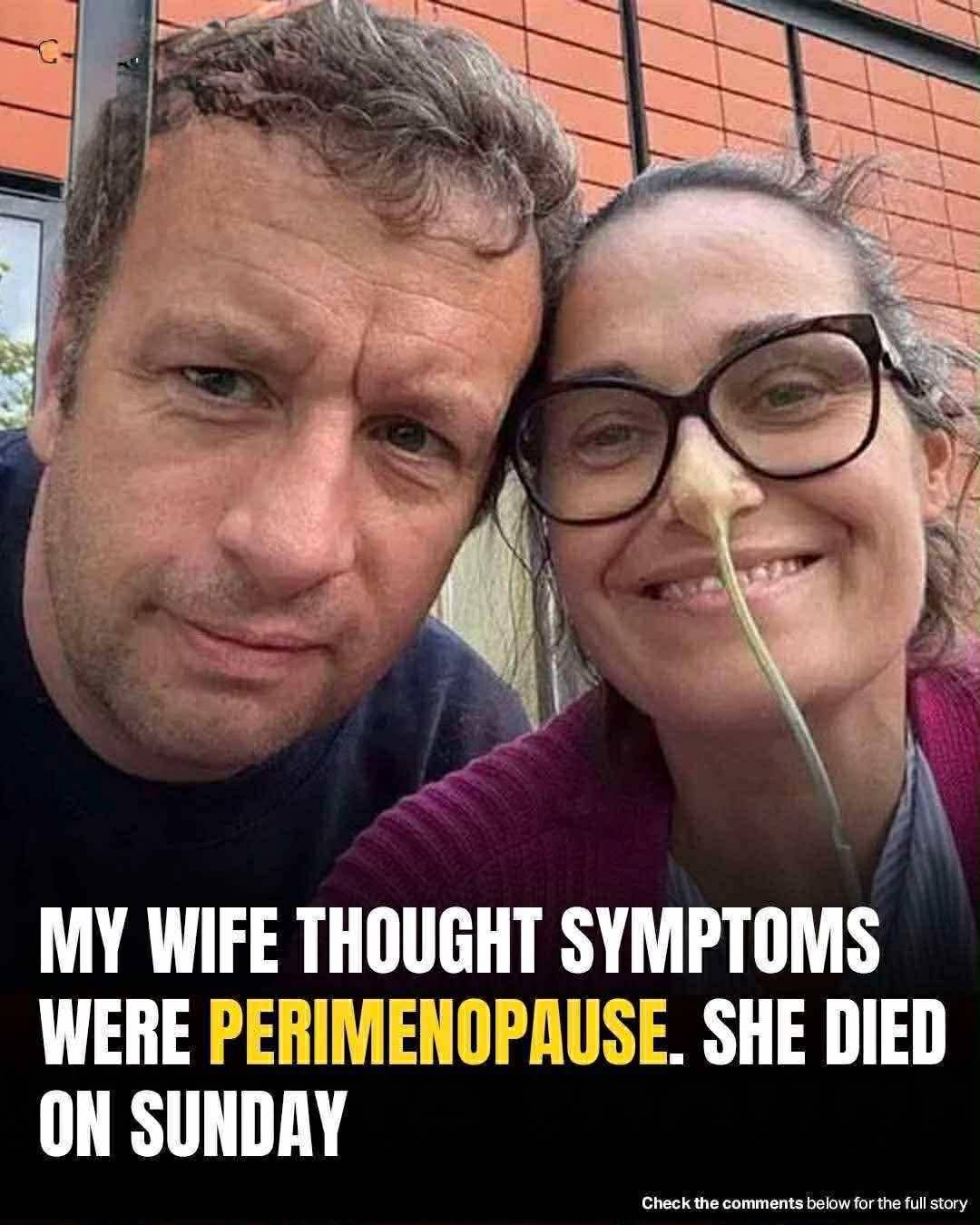
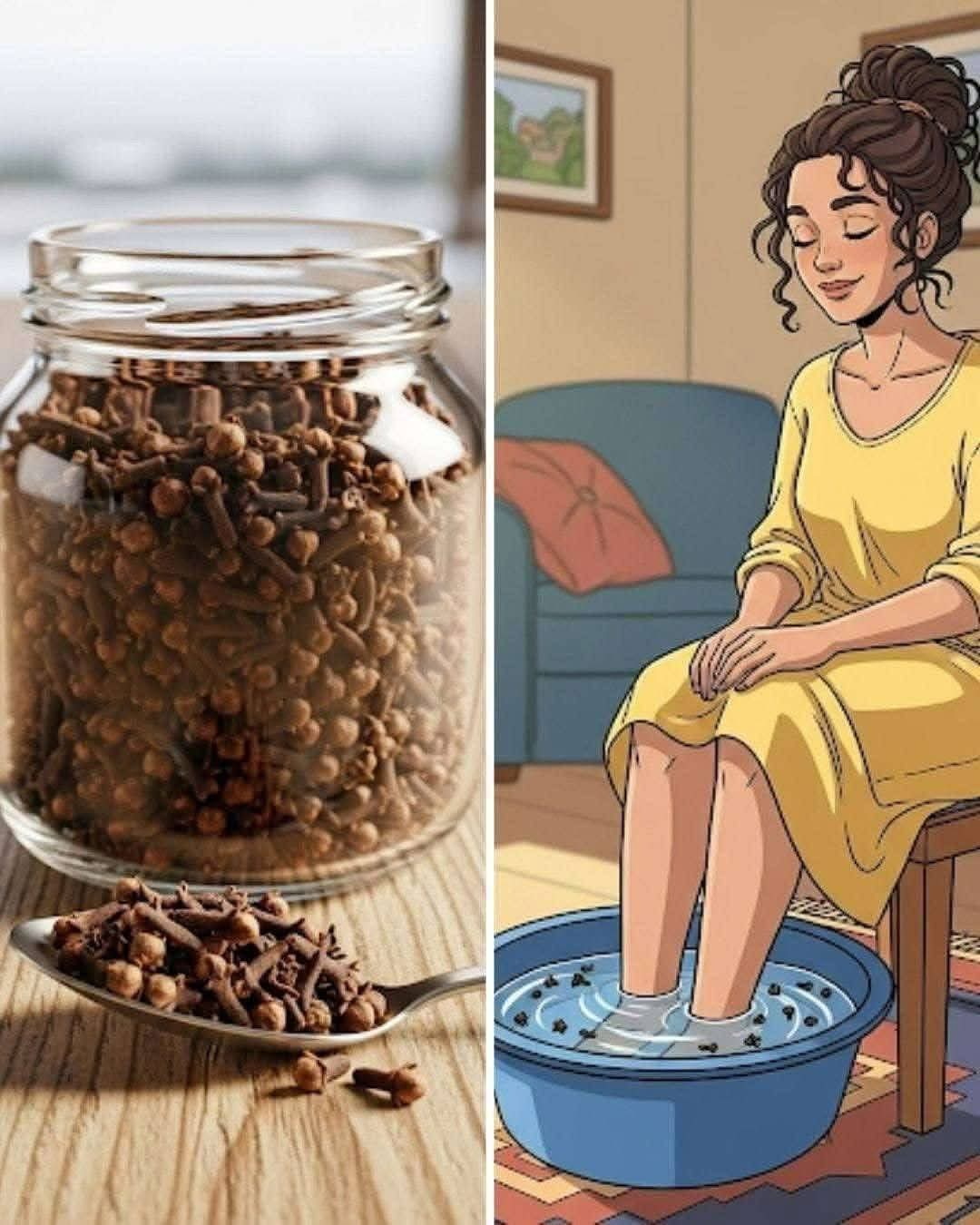
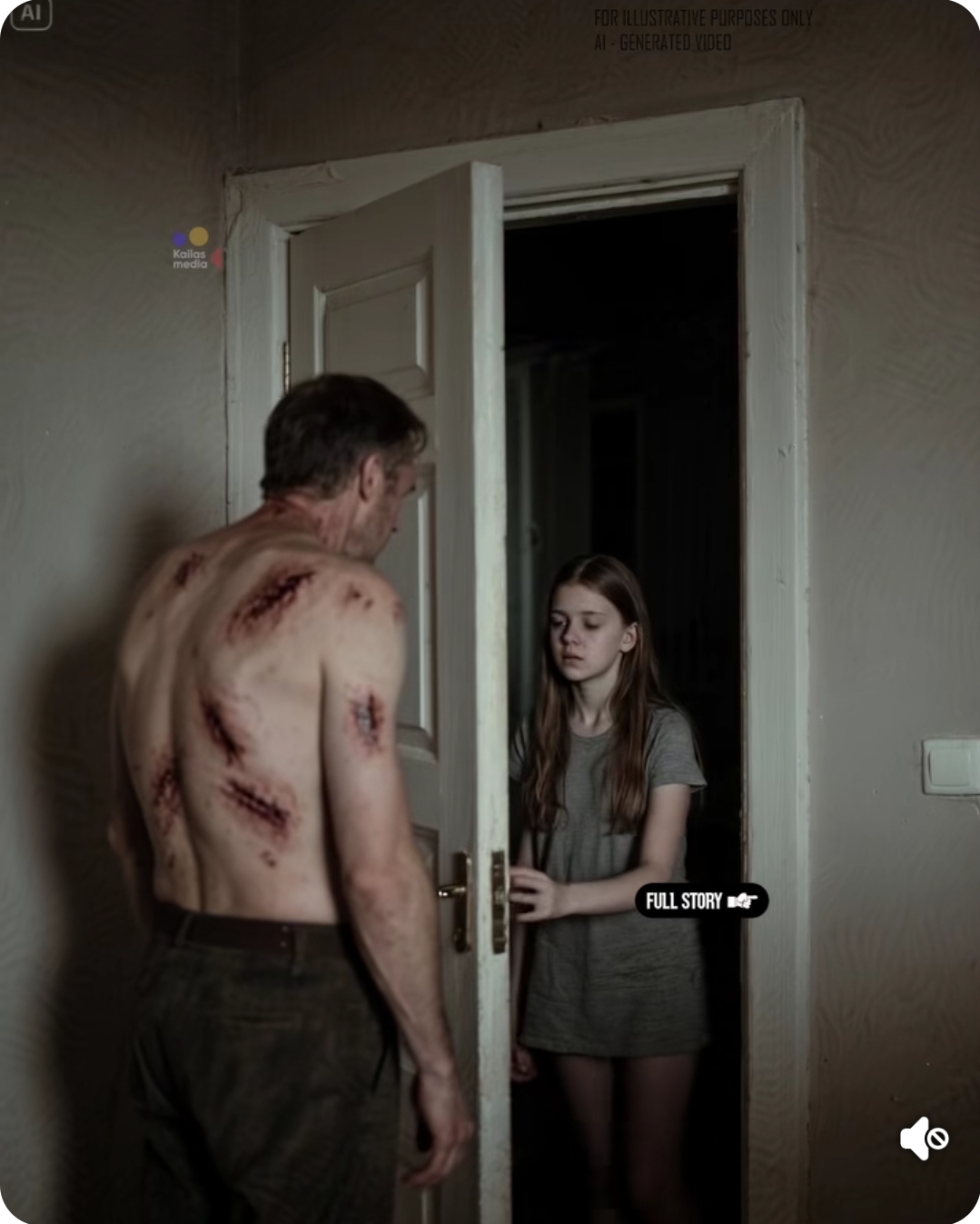
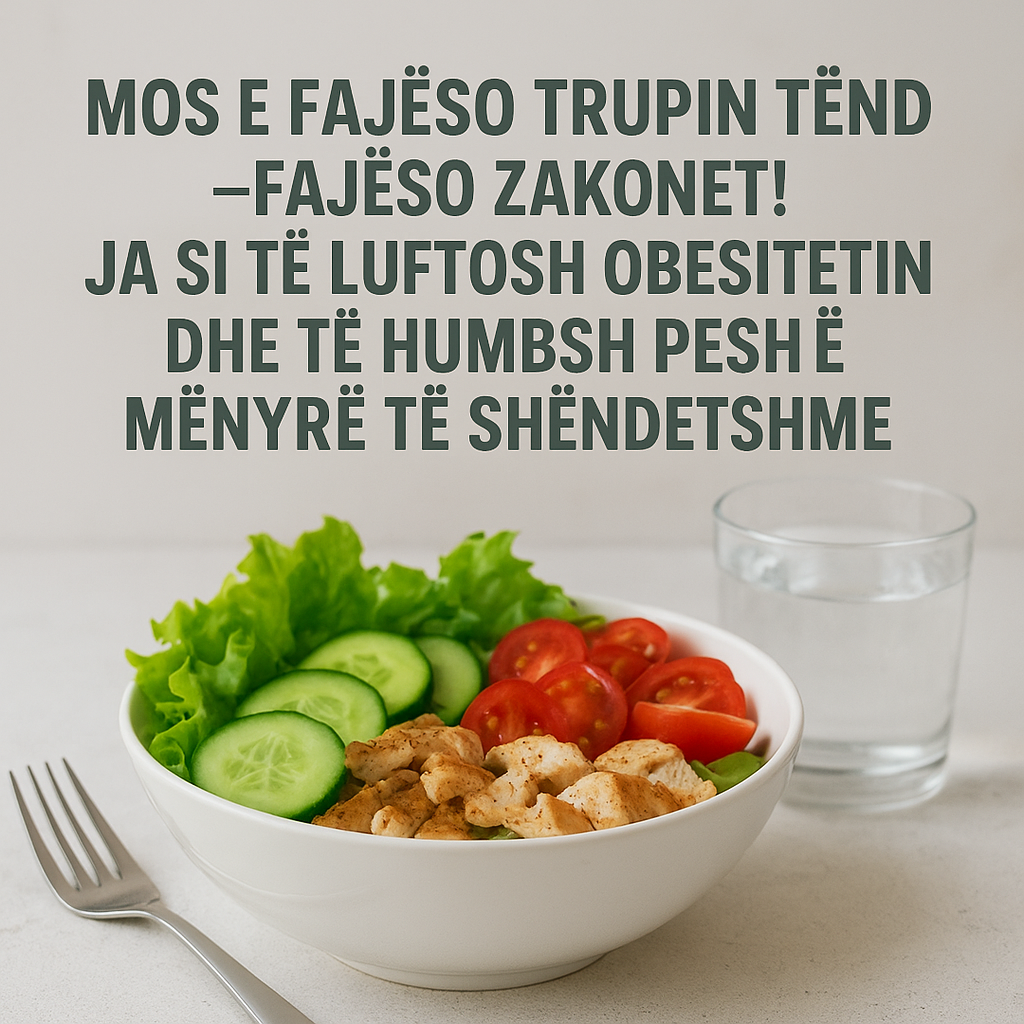


Leave a Reply